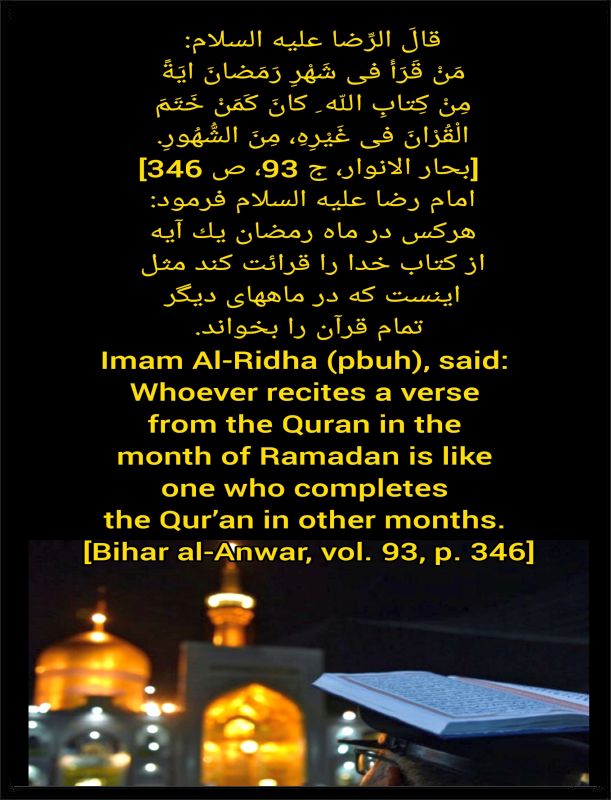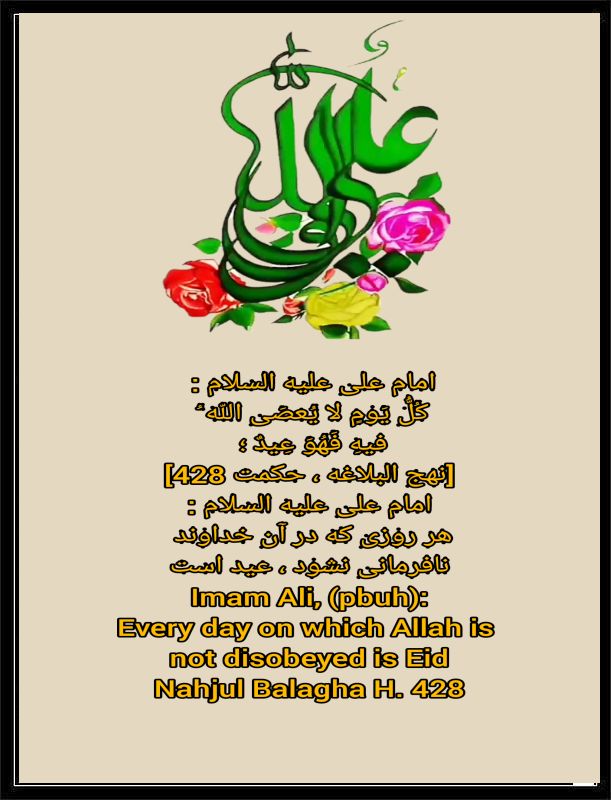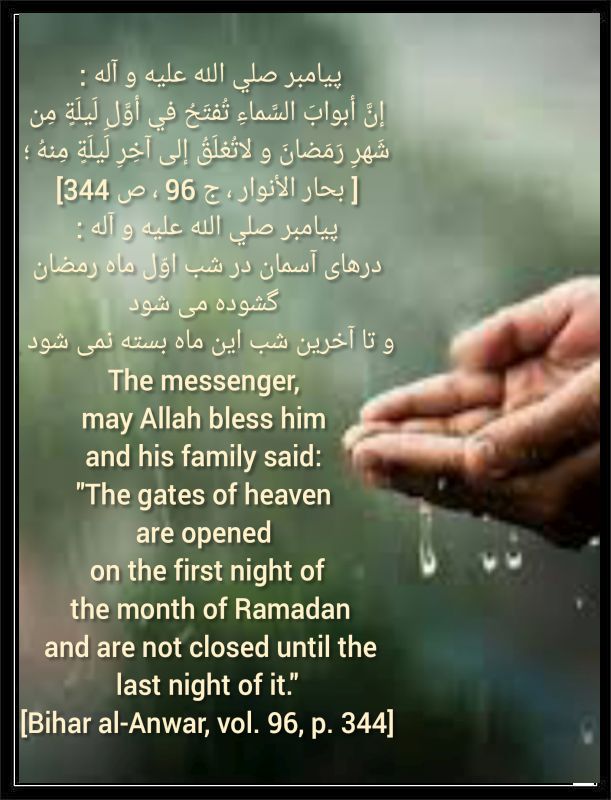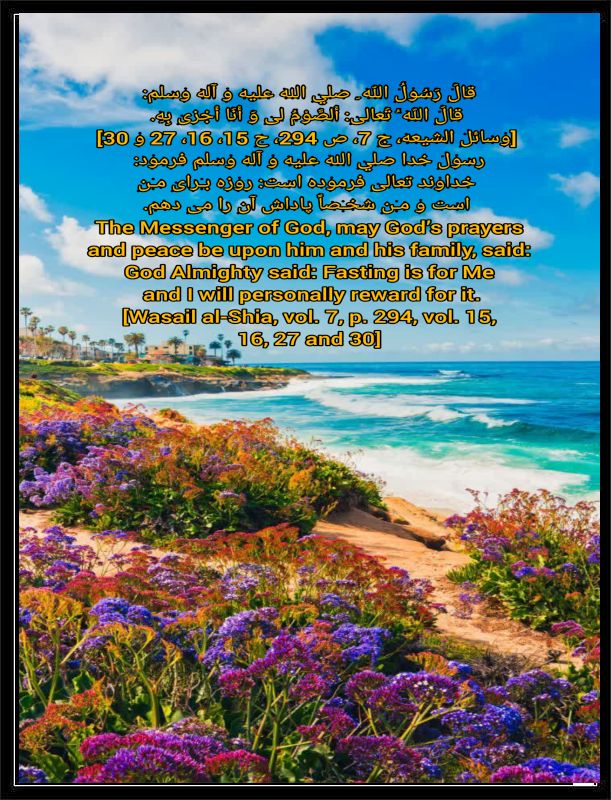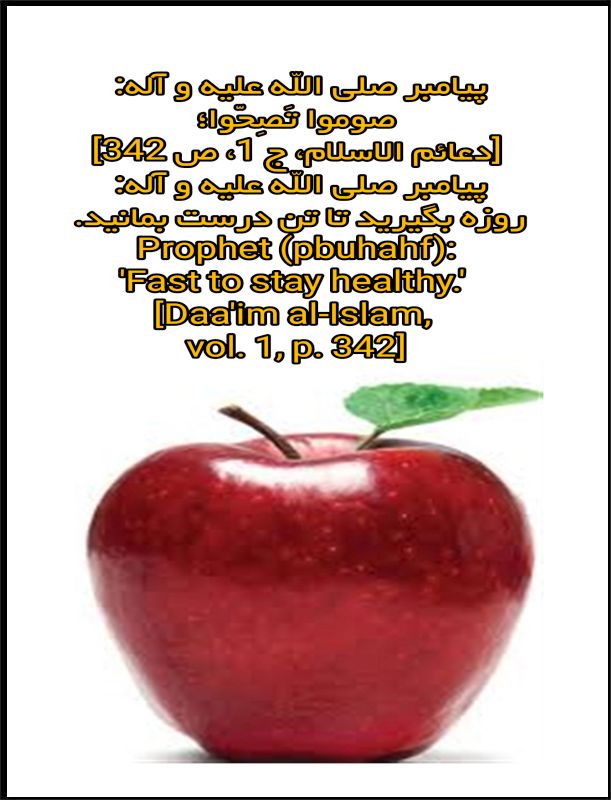Posted by Mustafa Abbas on July 28, 2014 | Views: 2436 | Ratings: 1099
As we draw close to the end of Ramazan, let's try to remember Allah(swt) and thank him for the opportunity He gave us to live through another month of blessed Ramzan. At the same time, let's resolve to continue with the good deeds and aamal of Ramzan throughout the year.
Zakat-ul-Fitr (Fitra)
Fitra is obligatory and Shariah (jurisprudence) emphasizes a lot on its observance. Abandonment of paying Fitra tantamounts to major sin (Gunaha-e-Kabeera). Imam Jafer Sadiq(a.s.) has said that "Just as if any person does not recite Salawat for Prophet Mohammad(sawaw) and his Ahl-e-Bait(a.s.) during prayers, his/her prayer is not acceptable, likewise if a person does not pay Fitra at the end of Ramzan, his/her Fasts of Ramzan are not acceptable".
Obligation of Fitra
Fitra is obligatory on all
- sane (aaqil),
- mature (baligh),
- liberated (aazad), and
- and financially independent (Ghani) persons.
Ghani in this context would mean that one can independently afford the expenses for the whole year. Whether sufficient cash for this purpose is readily available or one has a permanent job/business which is sufficient for sufficiently providing expenses for a whole year. If these conditions do not exist, one would not be categorized as Ghani instead as Faqeer (Dependent or insolvent) and Fitra is not obligatory on a Faqeer, instead it is Mustahab (recommended).
Fitra is obligatory on Ghani persons for themselves as well as for their family members irrespective of their age, beliefs or religion. Irrespective of the fact that it is obligatory for one to bear the expenses of his family members and that the family members are mature (baligh) or not (na-baligh), are liberated/free or slave. Likewise, it is obligatory upon one to pay the Fitra for a guest (be it a Muslim or non-Muslim) who is staying with the person when the moon of the new month of Shawwal is sighted. However, if the guest arrives after the sighting of the moon then the Fitra of that guest is not obligatory on the host. And finally if the host is a Faqeer (dependent or insolvent) and the guest is a Ghani (solvent) then the guest would pay his/her own Fitra.
NOTE 1: If a person spends money on someone which is sufficient for his maintenance that is not enough to consider him as one of his dependants. Dependants are required to be under his care for their livelihood.
NOTE 2: If a person is a dependant of two people, his Fitrah is obligatory on both by being divided between them.
NOTE 3: If the Fitrah of a person is obligatory on another person, it is not obligatory on him to give his Fitrah himself.
NOTE 4: If it is obligatory on a person to pay the Fitrah of another person, his obligation will not end if the latter himself pays his own Fitrah
However, if a guest comes without the consent of the host, his Fitrah becomes Wajib upon the host on the basis of Ehtiyat Wajib (obligatory precaution). This ruling also applies to a person who is forcibly made to maintain another person. But if he invites a person for Iftar on the night of Eid, he is not one of his dependants and his Fitrah is not obligatory on the person who invited him. (Ehtiyat Mustahab to pay for uninvited guest or one forcibly maintained.)
Timing of Fitra
Fitra becomes obligatory (wajib) upon sighting of the moon. It is preferable to separate the Fitra during the night. From that time onward, the Fitra can be distributed any time but not later that the Eid-ul-Fitr prayers the next day. If somehow, the Fitra is not distributed before the prayers of Eid-ul-Fitr then it can still be distributed until the evening of Eid-ul-Fitr with the intention (niyat) of proximity to Allah (Qurbatan il-Allah). Distinction of delayed (Qaza) or within time (Ada) is not necessary. If Fitra has been separated with the intention of giving it to some special person who has the right to receive it (mustahiq) then further delay is permitted.
Even with all these conditions, Fitra is still not distributed until the descending of the Sun starts (zawal), it is still recommended to pay the Fitra on that day and even if the day passes, Fitra is still to be paid on the following day.
Amount of Fitra
Measurement of Fitra - in Shariah terminology - is one Sa'ah which is an Arabic weighing equivalent to about 3 Kilos and 250 grams. To be on the safe side, 3 and a half Kilos is recommended. The grain of Fitra could be wheat, barley, dates, rice or whatever item is more frequently used for eating. It is perfectly acceptable to pay the cost of instead of the 3.5 Kilos of any of the above items to the deserving people. The amount will be determined as per prevalent market rates of the items.
Deserving persons who can receive Fitra
The most deserving people for receiving amounts of Fitra are the poor people. Preference should be given to relatives if there are poor relatives. After the relatives, any poor neighbors should be preferred and then the Ulema - the scholars. During the period of occultation (ghaibat) of Imam Zamana(atfs), it is preferable to give the amounts of Fitra to a Mujtahid Jame-ush-Sharaet (learned scholar). The persons receiving the Fitra money should not be Syed, however if the Fitra is coming from a Syed then a deserving Syed can also receive it. In addition, the poor who receives the Fitra should not be dependent upon the person giving the Fitra. Fitra should be given to a person who is not expected to get involved in major sins. Finally, one deserving person should not be given less than the amount of one Fitra (equal to 3.5 Kgs of any item stated above), however, more than one Fitra can be given to any deserving person.
FAQ on Zakatul Fitr (according to Ayatullah Sistani)
Q. What is Zakatul Fitrah?
A: It is religious tax/alms (zakat) paid on the day when Muslims break the fasting period at the end of the month of Ramadhan. This alms is known as Zakat al-Fitrah.
Q. What do the Qur'an and Hadith say about Fitrah?
A: Imams (a) say that the verses: Indeed whosoever purifies himself shall achieve success, and glorifies the Name of his Lord and prays (87:14 & 15) refer to giving of Fitrah and saying prayers on Eid al-Fitr. Imam Ja`far as- Sadiq (a) said: for your fast to be accepted, give zakât.
Q. When does Fitrah become wajib?
A. Payment of Fitrah becomes obligatory after sunset on the eve of Eid al- Fitr. The Fitrah should be kept aside and paid on Eid al-Fitr before Eid prayers or before midday for those who cannot say their Eid prayers. It is necessary to have obligatory intention (niyyah) of giving Fitrah for God's pleasure only.
Q. What happens if someone forgets or does not give Fitrah on time?
A. If one does not give out or set aside the Fitrah within the due time, he should give the Fitrah later, on the basis of precaution, without making the niyyah of adaa or qadhaa but only Qurbatan Ilallah.
Q. Can we give Fitrah in advance?
A. Giving Fitrah before the eve of Eid al-Fitr is not permissible. However, if you wish to send Fitrah earlier so that it reaches the needy on time, then you can send it as a temporary loan to the needy and then change your intention from loan to Fitrah on the eve of Eid al-Fitr.
Q. To whom is Fitrah obligatory?
A. Paying Fitrah is obligatory on every Muslim who is mature (baligh), sane, financially able, and conscious on the eve of Eid al-Fitr. Fitrah should also be paid on behalf of all dependents (e.g. wife, children) whom one supports financially.
Q. When is a host required to pay Fitrah for his guest?
A. If a person invites another person to his house on the eve of Eid al-Fitr and if the guest is present at the host's place at the time of the sunset then it is obligatory for the host to pay Fitrah for his guest.
Q. What happens if the guest arrives after the sunset on Eid night?
A. In this case the guest will pay his/her own Fitrah and it is not obligatory on the host to pay Fitrah for the guest.
Q. What happens if a guest comes uninvited and is present at the time of the sunset on the eve of Eid al-Fitr?
A. Ayatullah Sayyid As-Sistani says that the host should still pay the Fitrah as an obligatory precaution. However, Marhum Ayatullah Sayyid al-Khui was of the opinion that is recommended for the host to pay Fitrah of an uninvited guest.
Q. How much should we pay for Fitrah?
A. Fitrah for a person is given on a weight of three kilograms (one sa`a) on any food commodity like wheat, barley, rice, millet, raisins or dates. Ayatullah Seestani is of the opinion that the item that is not a staple food in your town should not be given in Fitrah. Say, for example, if millet is not a staple in Vancouver then Vacouver mumineen should not pay Fitrah on millet.
Q. Can we give cash value of any commodity mentioned above?
A. Yes, cash value in lieu of any foodstuff mentioned can be given as Fitrah. Thus, if a kilo of rice costs $2.00, the cash value of Fitrah on rice per person would be $6.00. We recommend, Fitrah on basmati rice to be Canadian Dollars 7.00 for residents of Canada and US Dollars 6.00 for US residents. (Please check prices for other items in your areas.)
Q. Whom should we give the Fitrah to?
A. It is given to the needy who are unable to meet their own or their dependants annual living expenses, nor do they have the means to do so through earning. Ayatullah As-Seestani says that the needy who is given the fitrah must be a Shi`ah Ithna `Ashari.
Q. Who should not be given the Fitrah?
A. A needy who: consumes alcohol, does not say his daily prayers (salat), commits sins openly, or he who is known to use the Fitrah in sinful way.
Q. Are there any additional rules that we need to be aware of?
A. Following are some important rules: (i) Fitrah should not be sent outside the town one resides in, if there are deserving mumineen in that town. (ii) Fitrah from a non-Sayyid cannot be given to a needy Sayyid; the reverse is permissible. (iii) A needy should be given at least one Fitrah (iv) Amongst the needy, relatives should be preferred over others when giving Fitrah, next in line are neighbors and then the learned.
Article from Webmaster, Ziaraat.Com
Qur'anic verses and hadiths of Ahl al-Bayt (peace be upon them) and sayings in Arabic, Persian and English.
https://eitaa.com/noorunalanoor
https://youtube.com/@mustafaabbas4668?si=EnSIkaIECMiOmarE
